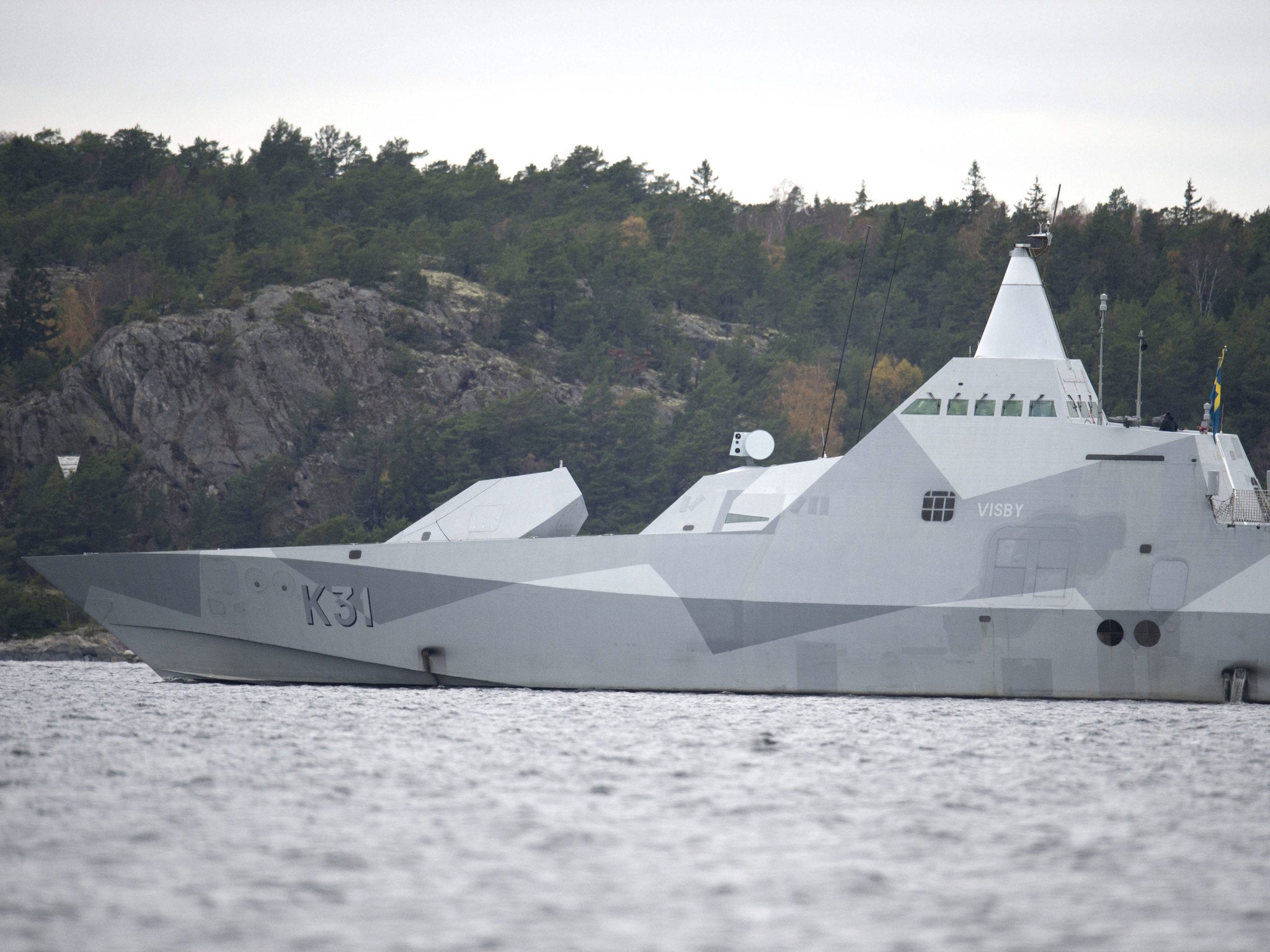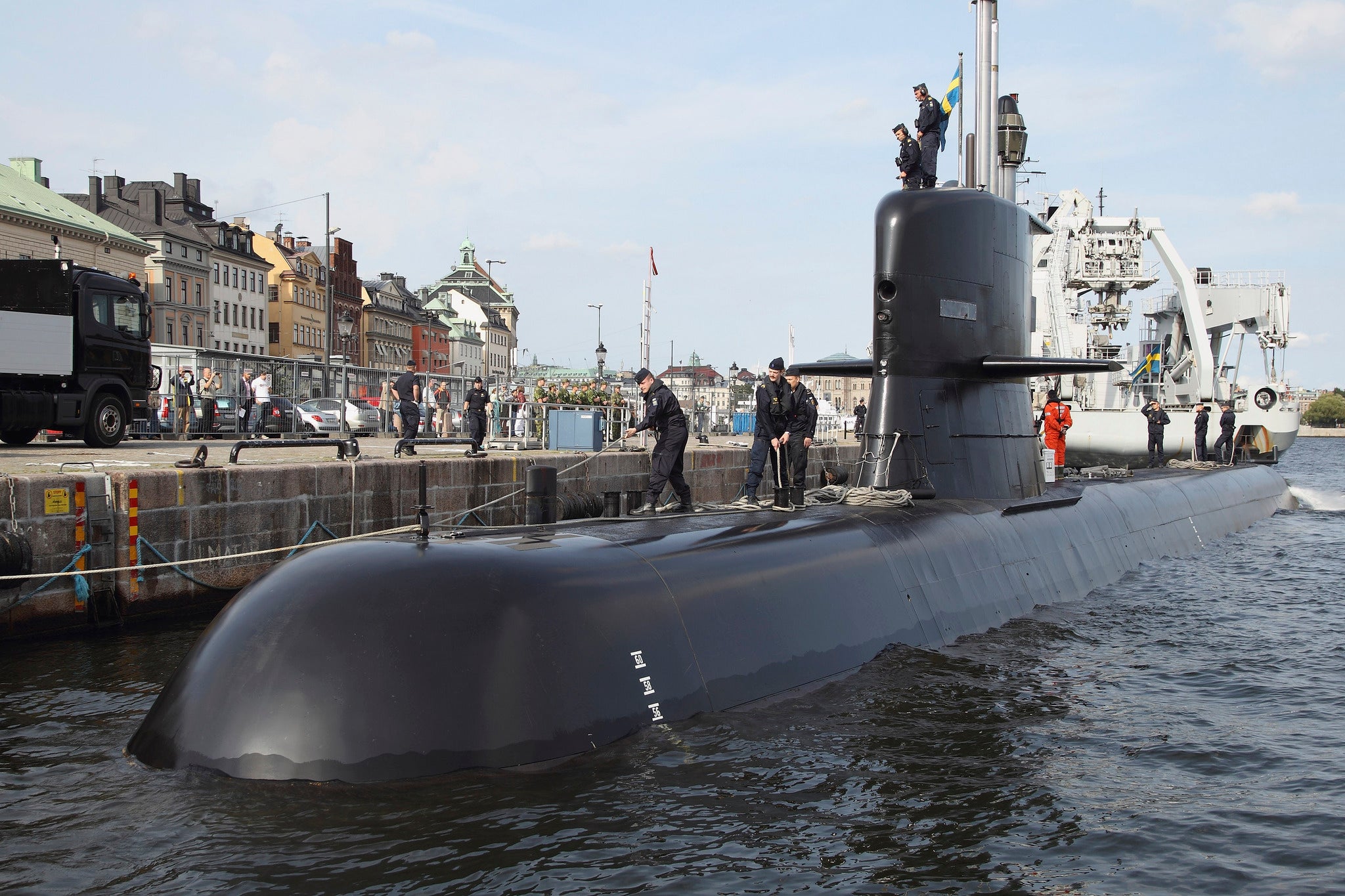Sweden submarine: Investigation underway into wreck of unidentified warship found off coast
The age of the submarine, which has Russian writing on the hull, has not yet been determined

Your support helps us to tell the story
From reproductive rights to climate change to Big Tech, The Independent is on the ground when the story is developing. Whether it's investigating the financials of Elon Musk's pro-Trump PAC or producing our latest documentary, 'The A Word', which shines a light on the American women fighting for reproductive rights, we know how important it is to parse out the facts from the messaging.
At such a critical moment in US history, we need reporters on the ground. Your donation allows us to keep sending journalists to speak to both sides of the story.
The Independent is trusted by Americans across the entire political spectrum. And unlike many other quality news outlets, we choose not to lock Americans out of our reporting and analysis with paywalls. We believe quality journalism should be available to everyone, paid for by those who can afford it.
Your support makes all the difference.A Swedish ocean exploring company has found the wreck of an unidentified submarine off the coast of the country, with some experts speculating that it sunk recently and is the result of a secret mission gone wrong.
As reported by The Express, a Swedish newspaper, the submarine is just under two miles off the coast of Sweden, although Ocean X, the team that discovered it, are not disclosing its exact location.
It was discovered last week, and the Swedish armed forces confirmed to the paper that the images of the craft are currently being analysed.
According to Ocean X explorer Dennis Åsberg, the submarine is fairly small, at around 20 metres long and three metres wide.

He added that there was no major visible damage to the wreck, and said the doors were closed - indicating that a crew may have been trapped inside.
Some experts believe that the submarine has not been there very long, and may be the result of a failed test.
Speaking to The Express, senior lecturer at Sweden's National Defence Academy, believes that the fact that no emergency signals had been received from the craft suggests it could be a "secret mission that has gone wrong."
However, some others believe that the wreck is much older, claiming it is a Russian submarine named 'Catfish', which is believed to have sunk in 1916.
Per Andersson, a retired lieutenant colonel in the Swedish Coastal Artillery, says he is "sure" it is a much older submarine, and says he has been in touch with former military colleagues who agree with him.
Åsberg said the age of submarine was impossible to tell from their initial exploration, and requires another search to determine properly.
He said that Russian Cyrillic characters could be seen on the side of the wrecked submarine's hull.
Ocean X will continue to explore the site, in conjunction with the Swedish armed forces, in order to find out more about the mysterious stranded boat.
Whether it is a relatively new wreck or is almost 100 years old, suspected Russian submarine incursions into Swedish waters are not a new phenomenon.
In October last year, a reported sighting of a submarine off the coast of the Stockholm archipelago prompted a week-long, £1.7 million search by the Swedish Navy.
It was Sweden's biggest military operation since the end of the Cold War, but resulted in no submarine sightings.

And in 1981, a Soviet submarine ran aground on Sweden's south coast, prompting a tense stand-off at the height of the Cold War. Ultimately, the government decided to release the submarine and its crew, towing it back to international waters where it was received by the Soviet navy.
In an effort to fend off submarine incursions into Swedish waters, which are frequently a hot topic in Swedish politics, the Swedish Peace and Arbitration Society unveiled the 'Singing Sailor Underwater Defence System' - a box adorned with an animated neon sign of a gyrating, topless sailor, which broadcasts the message "This way if you are gay" in morse code through the water.
It was hoped that the message would deter Russian forces, which work under the direction of a government which has been internationally criticised for its homophobic policies.
Join our commenting forum
Join thought-provoking conversations, follow other Independent readers and see their replies
Comments